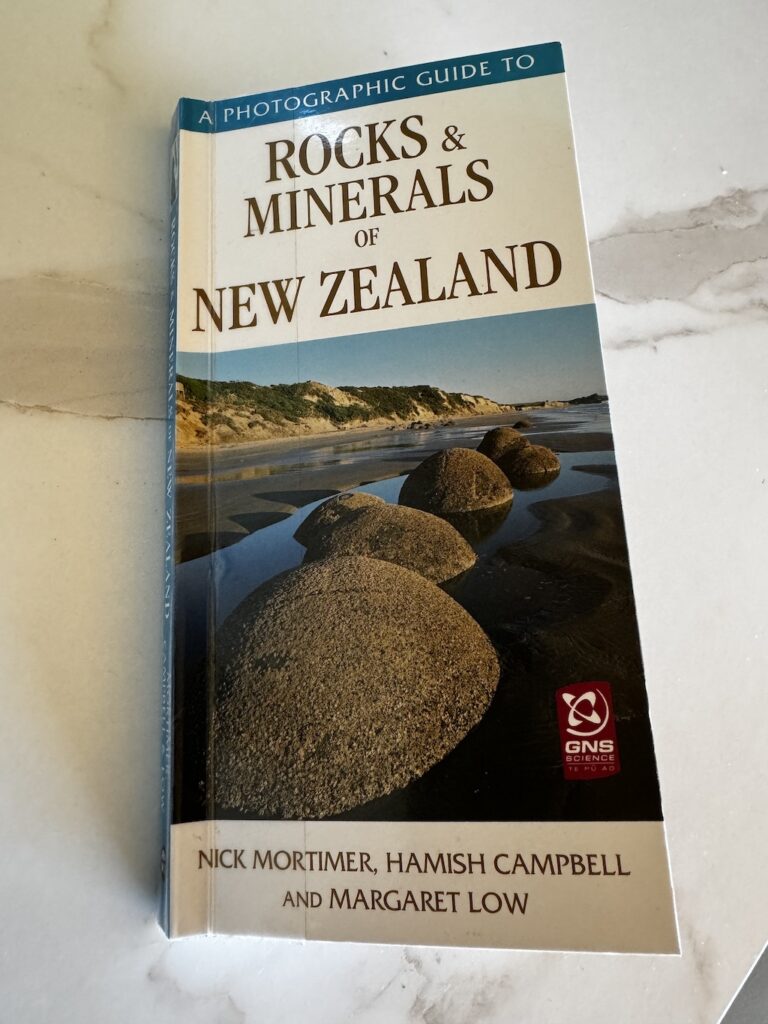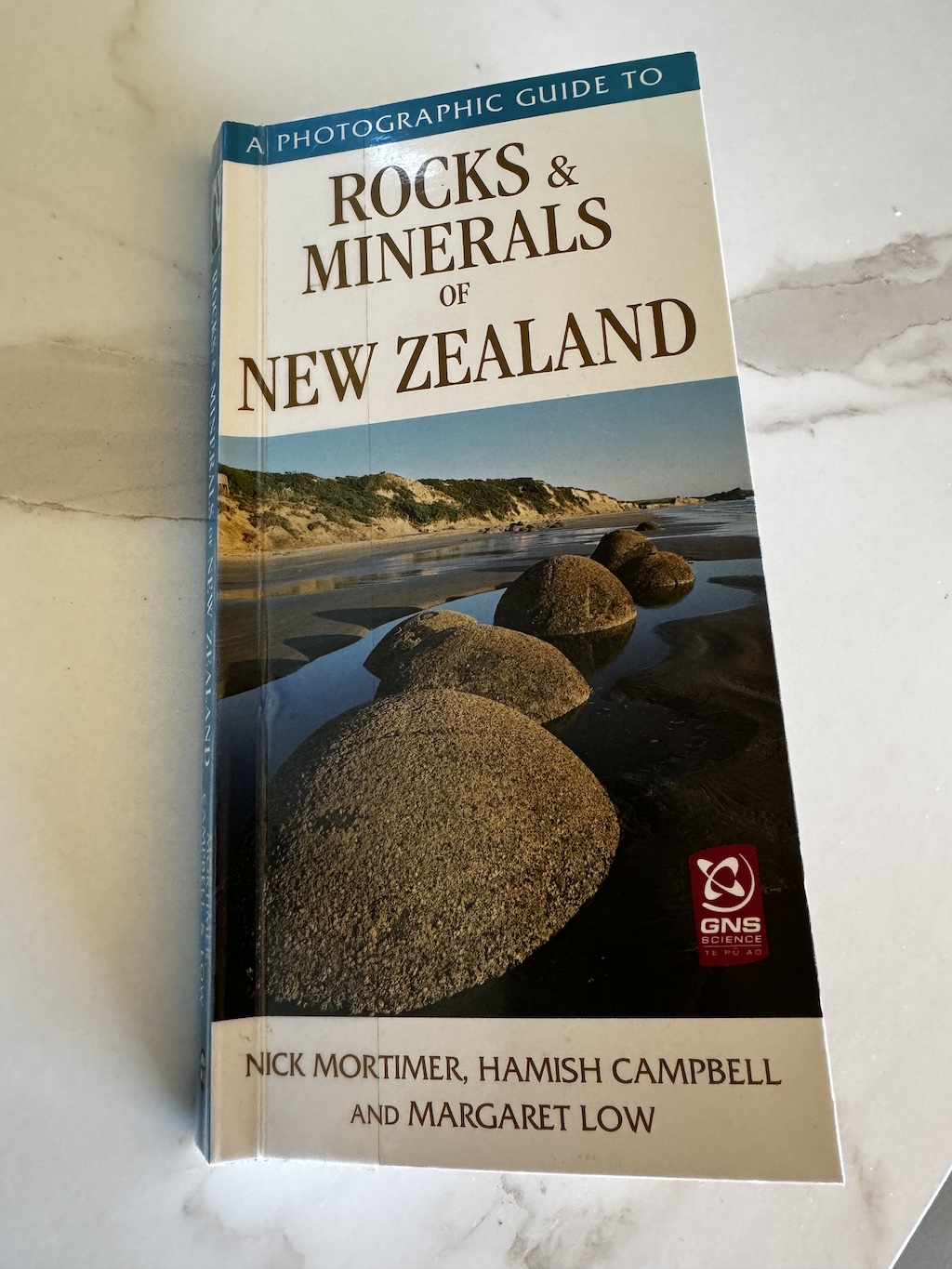What are rocks and minerals and what is the difference between the two? Great question right? I hope to explain what I’ve learnt over the past few months and what I have come to understand about both.
If I’m going to be tumbling and polishing stones I’d like to have at least a basic understanding of how they are formed and deposited and also be able to identify (most likely have a good guess) at what they are!
Resources
Google of course has been a huge help and a huge hinderance! Information overload of course! More than helpful have been the following five books:
- A Photographic Guide to Rocks & Minerals of New Zealand (Nick Mortimer, Hamish Campbell and Margaret Low)
- New Zealand Gemstones (Lyn and Ray Cooper)
- Collecting Rocks, Gems and Minerals (Patti Polk)
- Gemstones (Jocelyn Thorton – PDF download printed out)
- The New Zealand Rockhound (Natalie Fernandez – I borrowed a copy from Invercargill Library)

Properties
A mineral is
a naturally occuring solid substance that has a distinctive crystalline structure (repeating three-dimensional patterns of atoms), a distinctive chemical composition and distinctive physical properties.
A rock is
any natural solid material consisting of one or more minerals or mineral-like substances.
Minerals are defined as naturally occurring inorganic solids with a definite chemical composition and crystalline structure. In contrast, rocks are composed of one or more minerals, along with other materials, and can be formed through various geological processes. While minerals are the building blocks of rocks, rocks are categorised into three main types—igneous, sedimentary, and metamorphic—each formed under different conditions. As Patti Polk explains, rocks are simply aggregates of minerals and minerals are the individual elements that bind together to form rocks. Understanding that was a real a-ha moment for me.
In this post, Learning About Types of Rocks I share little more about the types of stones that I pick up from my amazing local rock hunting ground, Gemstone Beach.
Did you know that a stone is much smaller than a rock, meaning that it is moveable? That means what I’m picking up from Gemstone Beach is stones (more so than rocks).
Things are slowly starting to make sense!


One Reply to “What are Rocks and Minerals?”